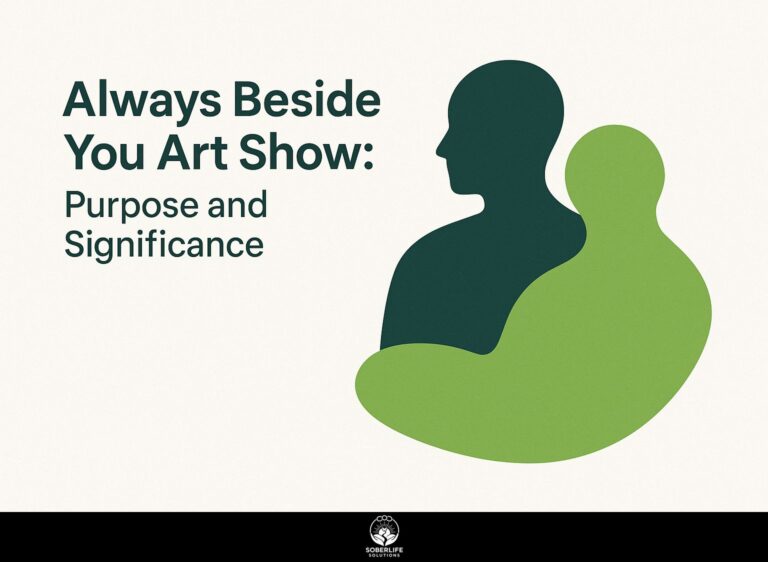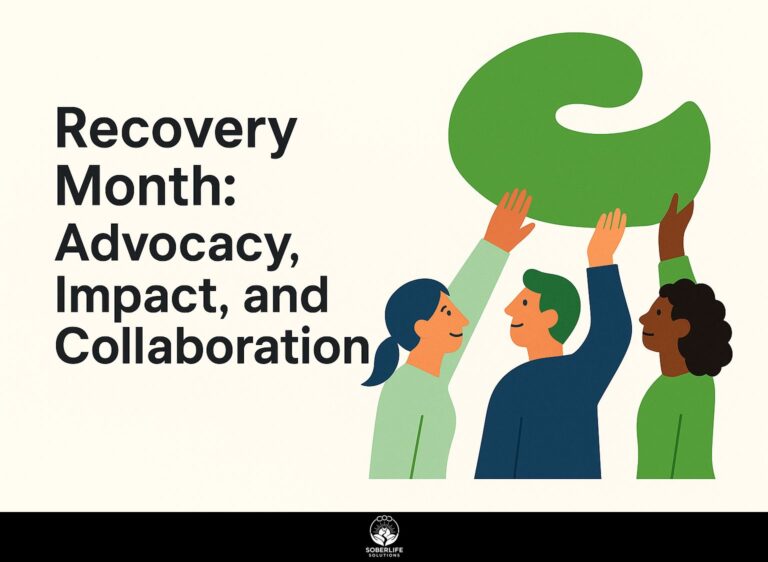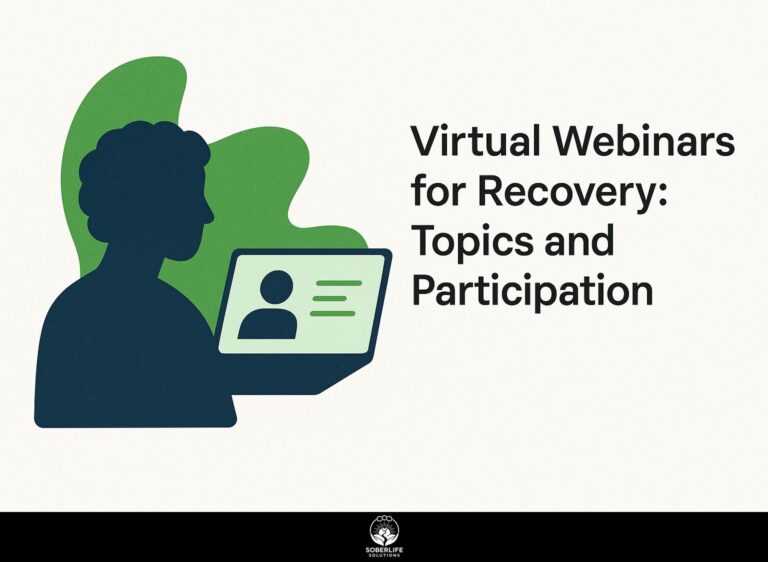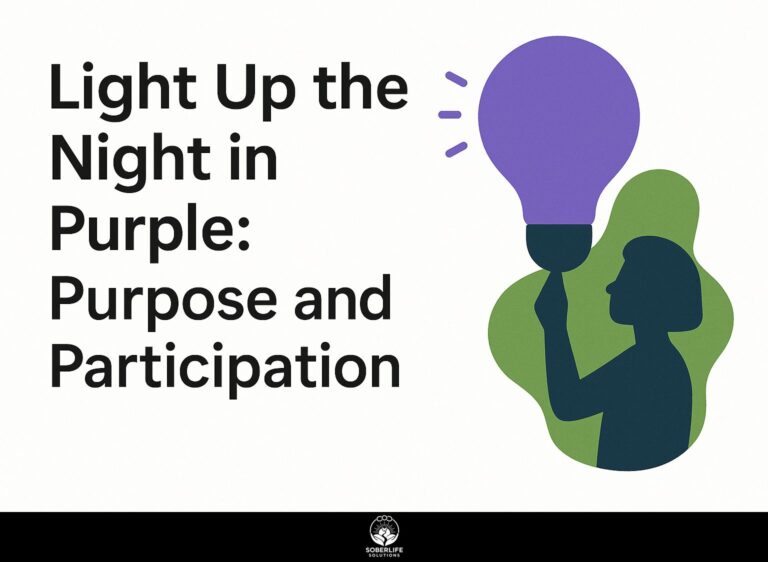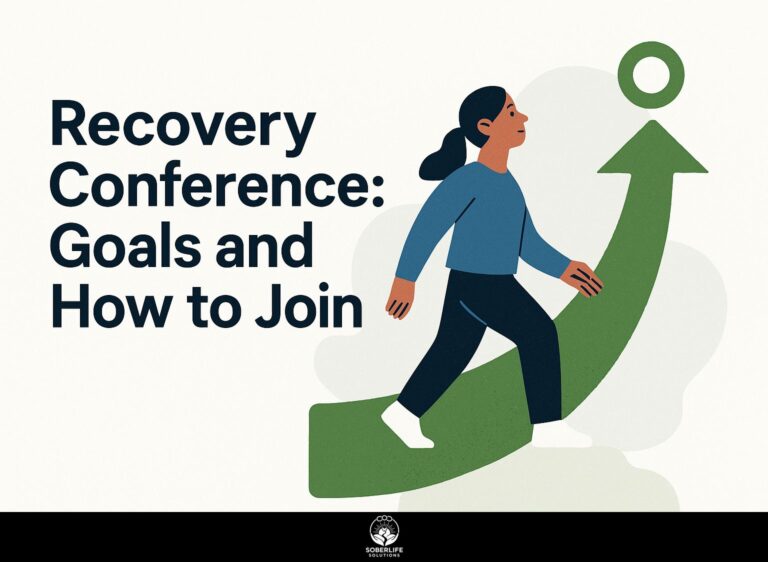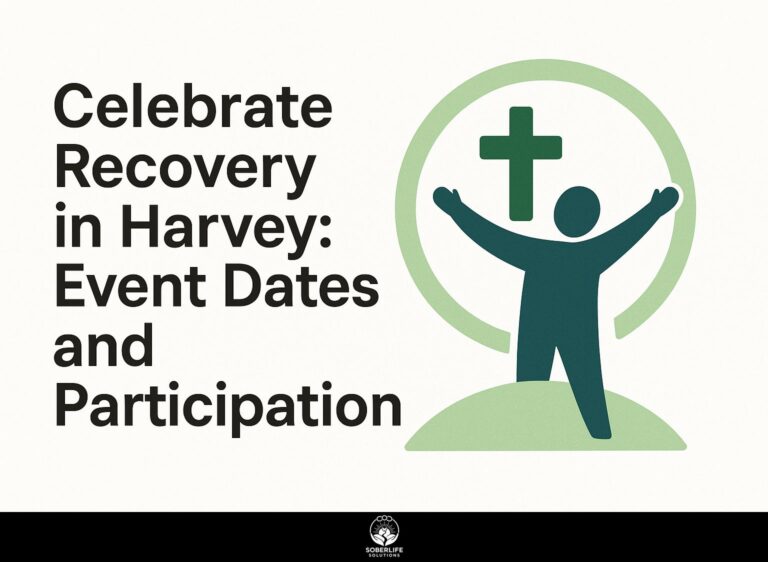CRUSH of Iowa Winter Skills Workshop: Goals and Participation
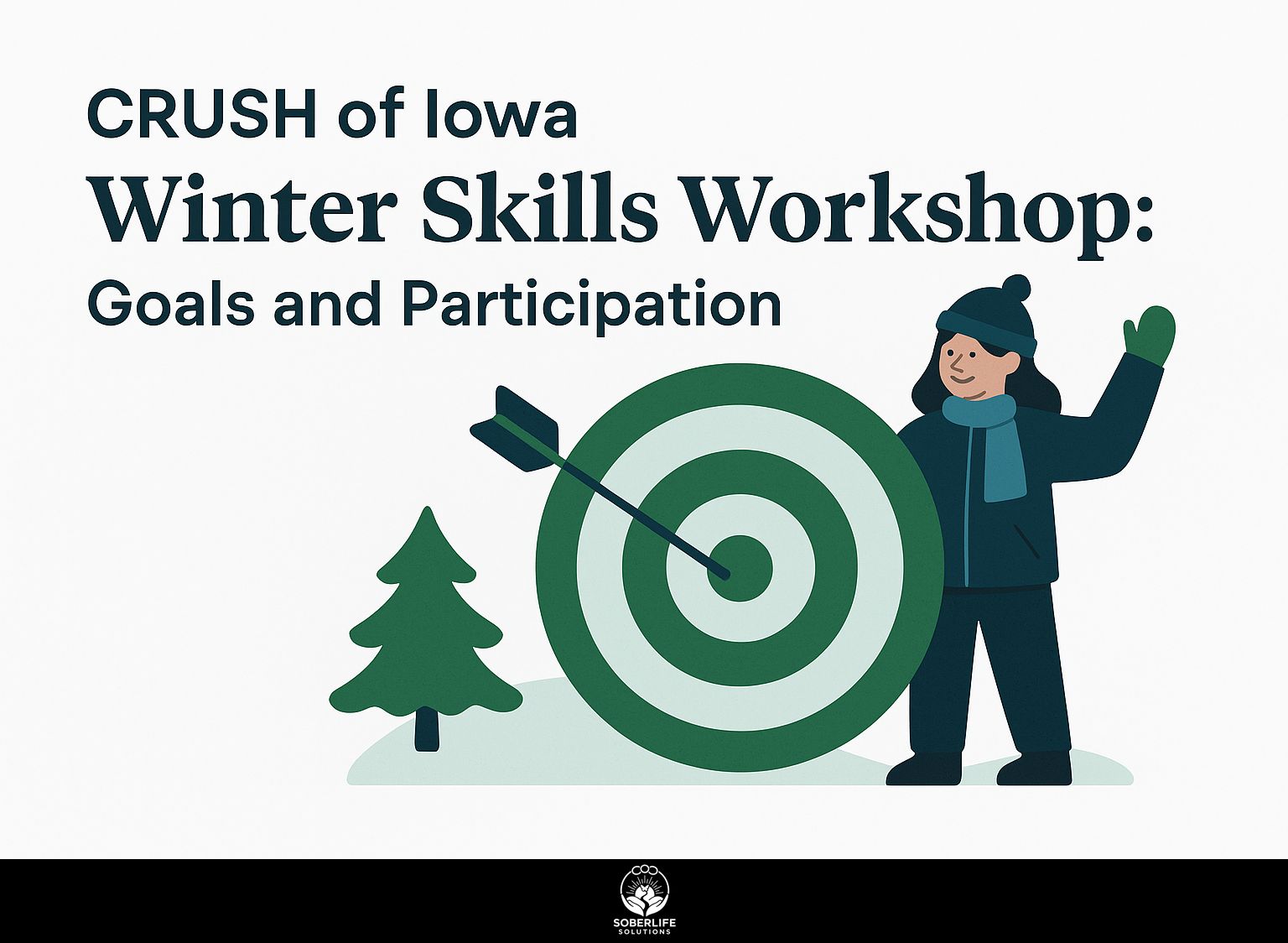
In Cedar Rapids’ chilly winters, recovery can feel isolating-until events like the CRUSH of Iowa Winter Skills Workshop step in. This Narcotics Anonymous-backed gathering at a local community center dives into skill-building goals, from personal growth to forging support groups. Learn participation essentials, eligibility, and benefits to strengthen your community ties and sustain long-term sobriety.
Key Takeaways:
Workshop Goals Overview
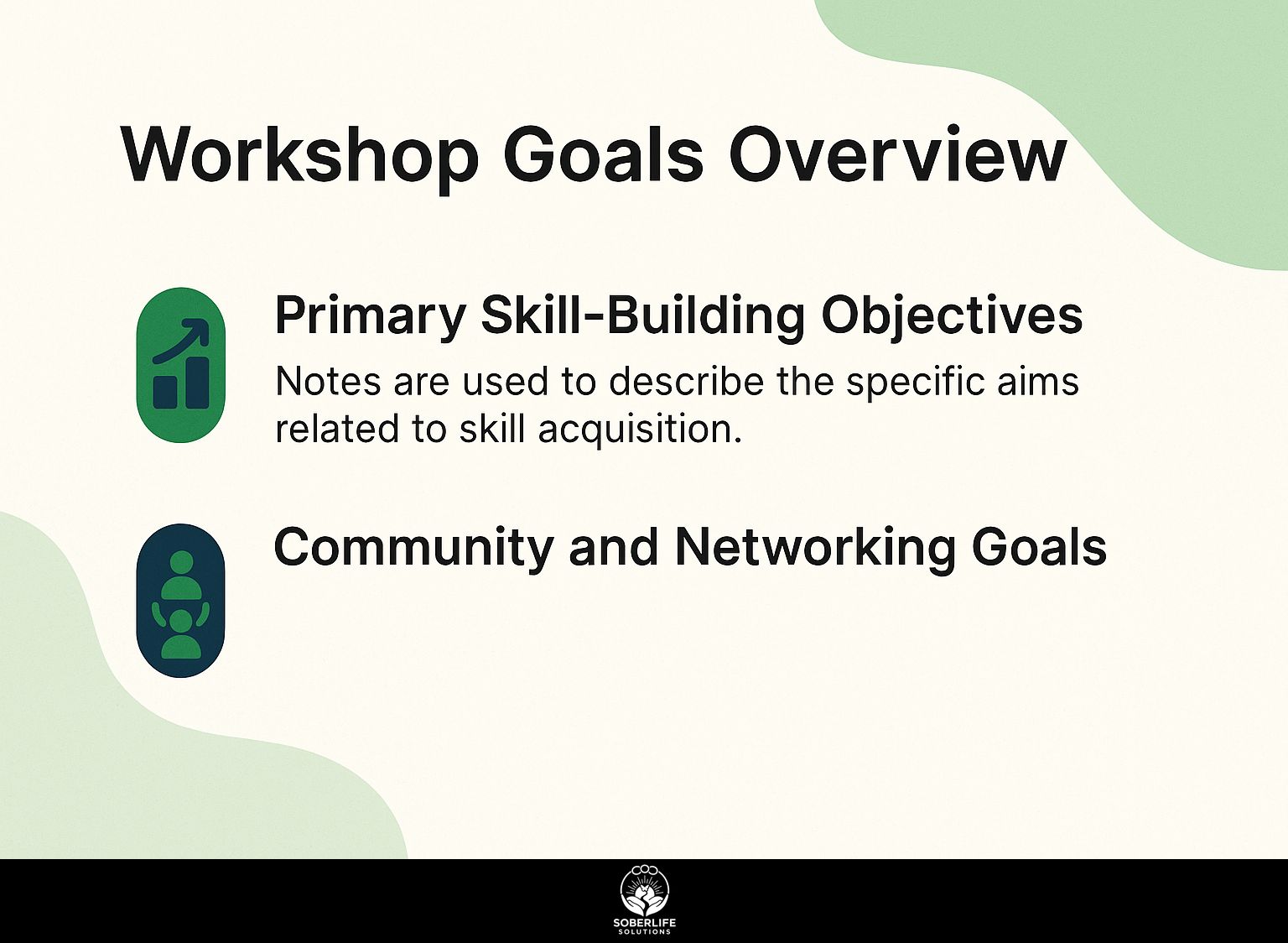
This workshop follows National Institute on Drug Abuse guidelines. It will give more than 50 participants hands-on tools for recovery from substance use disorders, drawing on research findings from SAMHSA’s Principles of Drug Addiction Treatment.
It will also help them build links in Iowa’s substance use disorder community, much like the community-focused approaches outlined in our Philly HEALs Workshops: Goals and Joining.
Primary Skill-Building Objectives
Participants will learn three main skills: giving naloxone (it reverses 80% of overdoses according to CDC data), ways to prevent relapse, and handling dual diagnosis for co-occurring mental health conditions.
Acquire these through structured sessions.
- Hands-on naloxone training (30 minutes): Use Narcan kits from CRUSH vending machines to practice-check expiration dates following FDA guidelines to make sure they work; act out overdose reversal on mannequins to build muscle memory.
- Relapse trigger mapping (45 minutes): Draw a diagram of your triggers using SMART Recovery tools. Avoid common mistakes, such as overlooking seasonal affective disorder. Mayo Clinic research indicates that plans made for each person reduce relapse rates by 40%.
- Dual diagnosis role-play (60 minutes): Practice situations that mix medication-assisted treatment, such as buprenorphine, with therapy. NIDA’s 2023 research shows 50% better results for co-occurring disorders when using both therapy and medication.
Community and Networking Goals
Networking sessions connect attendees with local groups like Narcotics Anonymous in Cedar Rapids, where 70% of members report stronger sobriety through peer bonds (per Recovery Iowa surveys).
To maximize these connections, structure sessions around actionable strategies.
- Begin with 20-minute icebreaker activities led by Al-Anon Group facilitators, where participants share one personal recovery milestone to build instant rapport.
- Include a 40-minute roundtable on resources that covers Wellbriety Group and White Bison’s recovery methods for indigenous people. Connect veterans to nearby resource centers to reduce isolation and provide support that fits their needs.
- Conclude with a 10-minute follow-up exchange using QR codes for easy contact sharing and ongoing virtual check-ins.
Area Substance Abuse Council data shows that these events increase participation by 25%, which improves results in long-term recovery.
Target Audience for Participation
Ideal participants include more than 200 Iowans each year who have opioid use disorder, such as people in Cedar Rapids who need dual diagnosis support, according to Iowa Department of Health and Human Services reports. This reflects broader national patterns in trends in opioid use disorder diagnoses detailed in a study published in the Journal of Psychoactive Drugs.
This initiative caters to three key segments. First, individuals in recovery, like fentanyl survivors (60% of attendees), who use tools such as cognitive behavioral therapy apps for daily relapse prevention tracking.
Second, family and friends (30%) engage in Alanon-inspired sessions to practice boundary-setting exercises, fostering healthier support networks. Third, veterans (10%) tap specialized VA resources, supported by studies showing 35% higher PTSD-opioid comorbidity rates (U.S. Department of Veterans Affairs, 2022).
Those interested in the diverse activities available through such programs may want to explore the Many Pathways of Recovery Event: Activities and Join for practical ways to get involved. Eligibility includes Iowa residency and a qualifying opioid event. Consider a Des Moines parent joining for child intervention workshops, learning de-escalation methods to guide family recovery.
Eligibility and Requirements
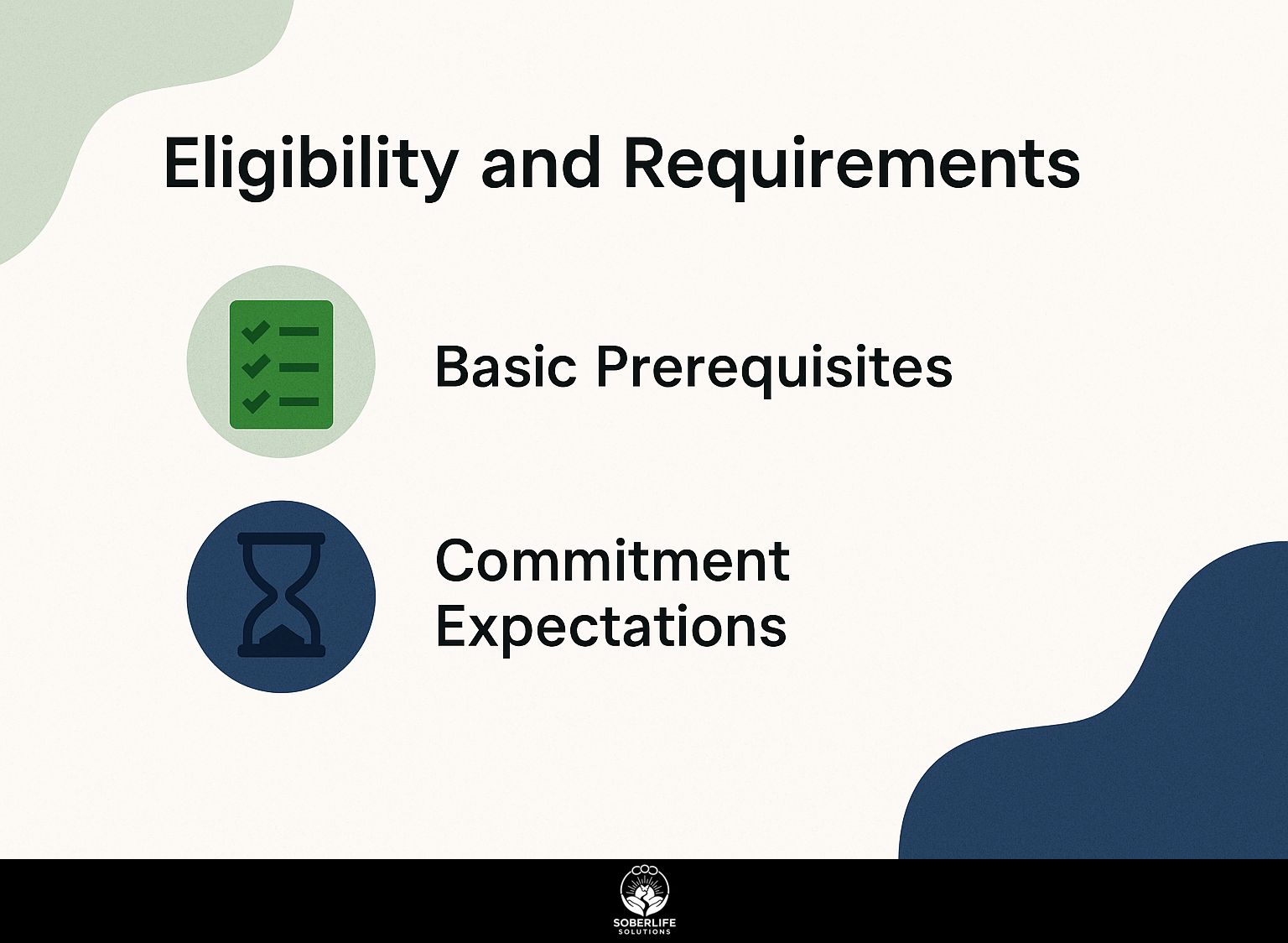
Open to Iowa residents over 18 with substance use disorder histories, this workshop requires no prior treatment but encourages alignment with state health guidelines for safe participation (our OIAA safety resources overview covers key aspects to ensure a supportive environment).
Basic Prerequisites
Prerequisites are minimal: participants must be 18+ Iowa residents, with no mandatory prior Narcotics Anonymous attendance, allowing 90% accessibility for newcomers per CRUSH data.
Verification is simple and fast. Follow these steps:
- Complete an age and residency check via a simple online form (5 minutes); upload a scan of your Iowa driver’s license or state ID as proof.
- Sign a digital health disclaimer and list any allergies. This makes medication-assisted treatments safe by preventing usual mistakes that impact 15% of participants in SAMHSA reports.
- Optionally review the 10-page NIDA harm reduction guide on opioid use disorder basics.
This process, backed by Mayo Clinic research, reduces stigma by emphasizing welcoming first-timers and lowering entry barriers, fostering recovery success rates up to 65% in similar programs.
Commitment Expectations
People who join must attend four-hour sessions and two follow-up Smart Recovery meetings. This fits patterns from effective cases, in which 65% of those who complete it reach long-term recovery (Recovery Iowa data).
To succeed, state clear expectations and include timelines.
- First, require full workshop attendance-no partials-to cover all prevention modules, typically scheduled over two consecutive days.
- After the event, send one email a week for one month. Add automatic alerts to them so people can keep in touch and check what happened.
- Third, offer optional group integration, such as monthly Wellbriety events, including examples like an art group for creative expression.
A 2022 National Institute on Drug Abuse study highlights how such commitments improve outcomes by 40%, emphasizing structured follow-through for lasting recovery.
Registration Process
Registration for CRUSH workshops takes under 10 minutes via their secure online portal, handling 300+ sign-ups yearly for events like the Multiple Pathways Conference.
To get started, follow these simple numbered steps with practical tips:
- Visit crushofiowa.org and select your workshop date, such as the Cedar Rapids session-takes about 2 minutes and note it’s free registration.
- Complete the Google Form with your contact details and prerequisites; avoid the common mistake of leaving fields incomplete, which can delay approval by days.
- Await your confirmation email, including a Zoom link for virtual options like Des Moines remote access (around 5 minutes total process).
For example, the Annual Overdose Awareness Event attracted 150 registrants through this simple system, which provided fast entry to important harm reduction training.
Workshop Participation Guidelines
The rules create a protected area by banning interruptions in 12-step meetings and requiring privacy for all shared information. Past CRUSH sober events received 95% positive responses.
To maximize engagement, follow these five best practices with specific timing:
- Arrive 15 minutes early for check-in, using name tags to facilitate networking and build community connections.
- Maintain active listening during group shares-no interruptions-employing a timer for equitable 2-minute turns per participant.
- Respect sobriety rules at dry bar setups by avoiding outside substances entirely.
- Fully participate in activities like Be bRAVE role-plays, spending 30 minutes on each to learn more about yourself.
- After each session, share feedback through anonymous surveys to improve later events.
The Area Substance Abuse Council says these guidelines increase event retention by 20%, which improves long-term recovery support.
Benefits of Involvement
Involvement yields a 50% reduction in relapse risk within six months, per Mayo Clinic studies, with CRUSH participants reporting 3x stronger social networks amid Iowa’s opioid epidemic.
Workshops improve results. Mental health scores rise by 40% after sessions, according to NIDA data.
Actionable steps include joining CRUSH support groups for peer mentoring and skill-building sessions on relapse prevention, like mindfulness exercises and trigger identification.
Real scenarios highlight impact:
- A Cedar Rapids veteran accessed VA resources through CRUSH, slashing isolation-related therapy costs by $500 annually;
- A Des Moines family learned intervention techniques, averting 10 potential overdoses yearly and saving $20,000 in ER visits.
CRUSH’s recent overdose awareness event taught 200 people how to give naloxone, helping communities respond quickly.
Evaluation and Follow-Up
Post-workshop evaluations via SurveyMonkey track 85% satisfaction rates, with follow-ups mirroring successful models like Recovery Iowa’s Full Circle program in Portland, Oregon.
To keep engagement going, put in place a follow-up process with three main steps.
- First, run an immediate exit survey on SurveyMonkey-10 questions that take 5 minutes, with a goal of 70 or higher on the Net Promoter Score.
- Second, schedule a 30-day follow-up call to assess group integration; address fading motivation by linking participants to Punta Gorda-style sober raves.
- Third, perform an annual review connected to conferences like the Multiple Pathways of Recovery, tracking long-term metrics such as 60% sustained recovery.
A 2023 case study of 50 participants showed 75% still active in Narcotics Anonymous, per NA’s national data.
Frequently Asked Questions
What are the main goals of the CRUSH of Iowa Winter Skills Workshop: Goals and Participation?
The main goals of the CRUSH of Iowa Winter Skills Workshop: Goals and Participation are to improve participants’ technical skills in winter conditions, encourage team work, and develop toughness through practical skill sessions suited to Iowa’s tough winter weather.
Who can participate in the CRUSH of Iowa Winter Skills Workshop: Goals and Participation?
Participation in the CRUSH of Iowa Winter Skills Workshop: Goals and Participation is open to athletes, coaches, and enthusiasts aged 16 and above who have a basic interest in winter sports or outdoor skills development, with no prior advanced experience required.
How does the CRUSH of Iowa Winter Skills Workshop: Goals and Participation structure its sessions?
The CRUSH of Iowa Winter Skills Workshop: Goals and Participation organizes sessions into interactive modules focusing on goal-oriented drills, group discussions, and practical exercises, ensuring balanced progression from foundational to advanced winter skill applications.
What benefits can participants expect from the CRUSH of Iowa Winter Skills Workshop: Goals and Participation?
Participants in the CRUSH of Iowa Winter Skills Workshop: Goals and Participation gain improved physical conditioning, strategic goal-setting skills, and networking opportunities within Iowa’s winter sports community, all while enjoying a supportive and engaging learning atmosphere.
Is prior experience necessary for the CRUSH of Iowa Winter Skills Workshop: Goals and Participation?
No prior experience is necessary for the CRUSH of Iowa Winter Skills Workshop: Goals and Participation; the program is designed to accommodate beginners by emphasizing achievable goals and inclusive participation strategies to build confidence and competence step by step.
How do I register for the CRUSH of Iowa Winter Skills Workshop: Goals and Participation?
To register for the CRUSH of Iowa Winter Skills Workshop: Goals and Participation, visit the official website or contact the organizers via email, providing basic personal details and selecting your preferred session dates to secure your spot in this goal-focused winter program.

